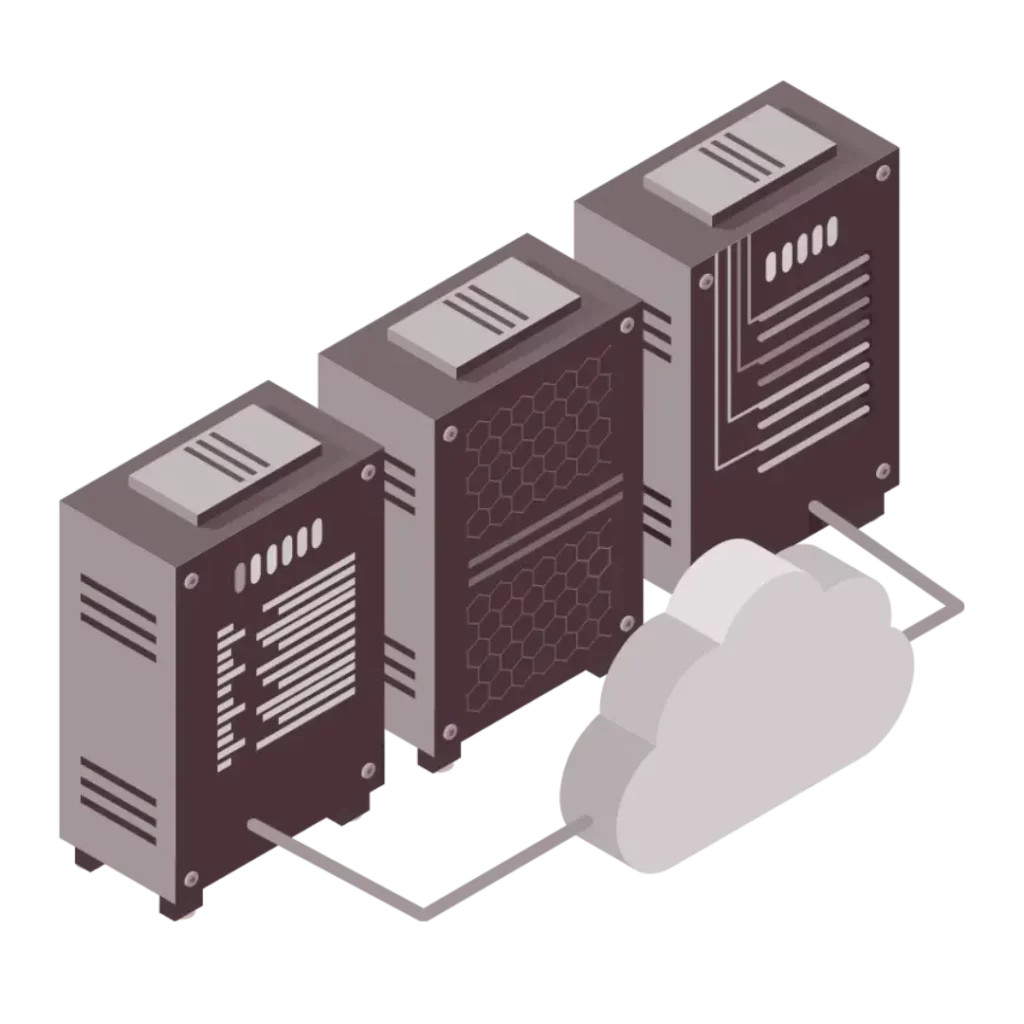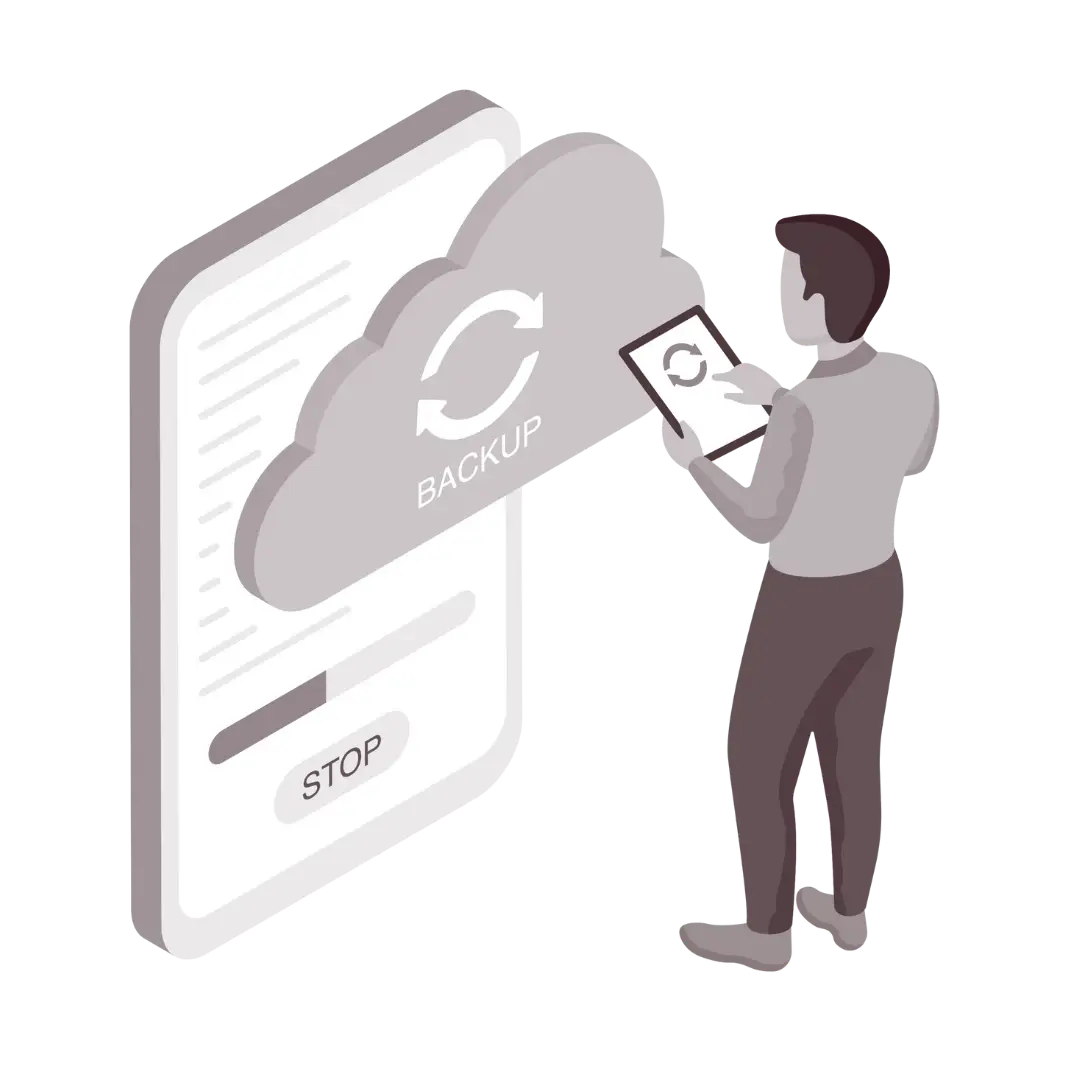Secure your data
Disaster Recovery
Backup and disaster recovery solutions that can prevent downtime and ensure business continuity.
Secure Your Business Data
Protect Your Business with Reliable Disaster Recovery Solutions
At Cyber United, we understand that unexpected events can strike at any time, putting your business’s data and operations at risk. Whether it’s a natural disaster, cyber attack, or system failure, having a robust disaster recovery plan is essential to ensure your business can bounce back quickly and minimise downtime. Our disaster recovery services are designed to safeguard your business, providing peace of mind that you’re prepared for the worst.


What is Disaster Recovery?
How long could your business cope without access to your own data? If the answer is “not at all,” ensure you have a reliable Disaster Recovery Service. Predicting disasters is difficult, but preparation with a comprehensive service is easy.
Disaster recovery refers to the set of procedures and strategies designed to restore vital IT systems, data, and operations after a disruptive event. This could include natural disasters, cyberattacks, hardware failures, or other unforeseen incidents. The aim is to minimise downtime, recover critical functions, and ensure business continuity.
Why Disaster Recovery Matters
Disasters, whether natural or man-made, can have a devastating impact on your business. Without a solid disaster recovery plan, you could face significant data loss, prolonged downtime, and potential damage to your reputation. Our disaster recovery solutions help you mitigate these risks, ensuring that your critical data, systems, and applications can be quickly restored, so your business can continue to operate smoothly.
Why should you invest in a backup solution?
Data Protection
A backup solution ensures that your critical data is protected against accidental deletion, corruption, or loss.
Business Continuity
In the event of a cyberattack, hardware failure, or disaster, a backup allows you to quickly restore operations and minimise downtime.
Compliance
Many industries have regulatory requirements for data retention and protection. A backup solution helps you meet these compliance standards.
Reputation
Losing data can damage your reputation and erode customer trust. A backup solution demonstrates your commitment to protecting sensitive information.
Cost Savings
Investing in a backup solution can ultimately save your organisation money by preventing costly disruptions and recovery efforts.
Peace of mind
Knowing that your data is securely backed up provides peace of mind, allowing you to focus on running your business without worrying about data loss.
HOW WE WORK
Our 3-step process
Discovery Call
We start by learning about your business challenges and goals. This helps us identify how our IT services can best support you.
Onboarding
During the onboarding phase you will be introduced to the team of experts who will guide you through the process.
Maintain
Ongoing management, IT support, and optimisation of IT infrastructure, systems, and software.
Frequently asked questions
Disaster recovery refers to the process of preparing for and recovering from unexpected events that disrupt your business operations, such as natural disasters, cyber attacks, or hardware failures. It’s important because it helps ensure your business can quickly resume operations and minimise downtime, reducing the impact on your customers and financial health. Learn more about why disaster recovery matters from the UK National Cyber Security Centre.
While data backup involves making copies of your data to protect against loss, disaster recovery encompasses a broader strategy. It includes not only restoring data but also recovering systems, applications, and entire business operations after a disruptive event. Disaster recovery plans typically include procedures for data restoration, alternative work arrangements, and communication strategies during a crisis.
A comprehensive recovery plan should include:
- An inventory of critical systems and data.
- Backup and recovery procedures.
- Roles and responsibilities during a disaster.
- Communication protocols for employees, customers, and stakeholders.
- A business continuity plan that outlines alternative operations.
- Regular testing and updating of the plan to ensure it remains effective.
- Full backup: A complete copy of all your data is made, which can take more time and storage space.
- Incremental backup: Only data that has changed since the last backup is saved, which is faster and uses less space.
- Differential backup: This backs up data that has changed since the last full backup, offering a balance between full and incremental backups in terms of speed and storage.
It’s recommended to test your recovery plan at least annually. However, depending on your industry and the complexity of your operations, more frequent testing may be necessary. Regular testing ensures that your plan works as intended and that your team is familiar with the procedures.
Common disasters include natural events like floods, fires, and storms, as well as cyber incidents such as ransomware attacks, data breaches, and system failures. Businesses should also prepare for human errors, power outages, and any other events that could disrupt normal operations.
The speed of recovery depends on the effectiveness of your recovery plan and the resources you have in place. With a well-prepared plan, many businesses can begin recovery within hours to days, minimising downtime. The goal is to achieve a recovery time objective (RTO) that aligns with your business’s needs.
A recovery point objective (RPO) is the maximum acceptable amount of data loss measured in time, such as how much data you can afford to lose in hours or minutes. It’s important because it helps determine how frequently you need to back up your data to meet your business’s recovery needs.
Many industries have regulatory requirements for data protection and recovery, such as GDPR. A robust disaster recovery plan helps ensure your business complies with these regulations by safeguarding sensitive data and ensuring its availability in the event of an incident.
Our disaster recovery services adhere to strict data protection laws, including GDPR, ensuring that your data is securely backed up and recoverable in compliance with regulatory standards. For more details on GDPR and disaster recovery, visit the ICO’s official website.
Yes, disaster recovery services are essential for businesses of all sizes. At Cyber United, we provide scalable disaster recovery solutions tailored to the needs of small and medium-sized enterprises (SMEs), ensuring that they can recover from disasters and avoid costly downtime.
Disaster recovery focuses on restoring IT systems and data after a disruption, while business continuity ensures your entire business can continue operations during and after an incident. Cyber United offers both disaster recovery services and business continuity planning to ensure comprehensive protection for your business.
At Cyber United, we use a multi-layered approach to disaster recovery, including regular data backups, system replication, and encryption to protect your data. Our solutions ensure that your data is securely stored and readily available when needed.
The speed of recovery depends on the size of your data and systems, but with Cyber United’s recovery services, we prioritise rapid restoration. Our goal is to reduce downtime and help you restore critical operations as quickly as possible.
